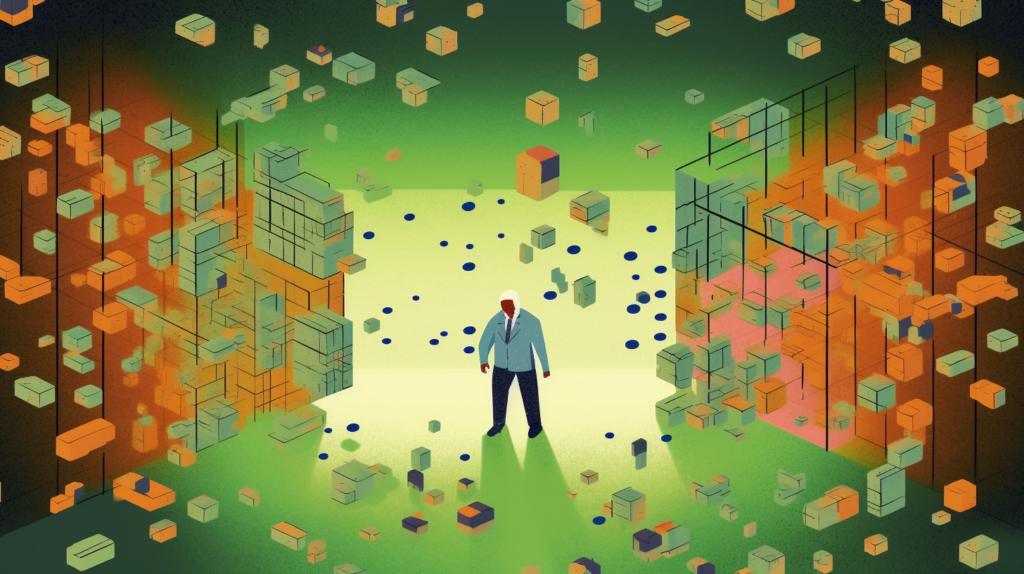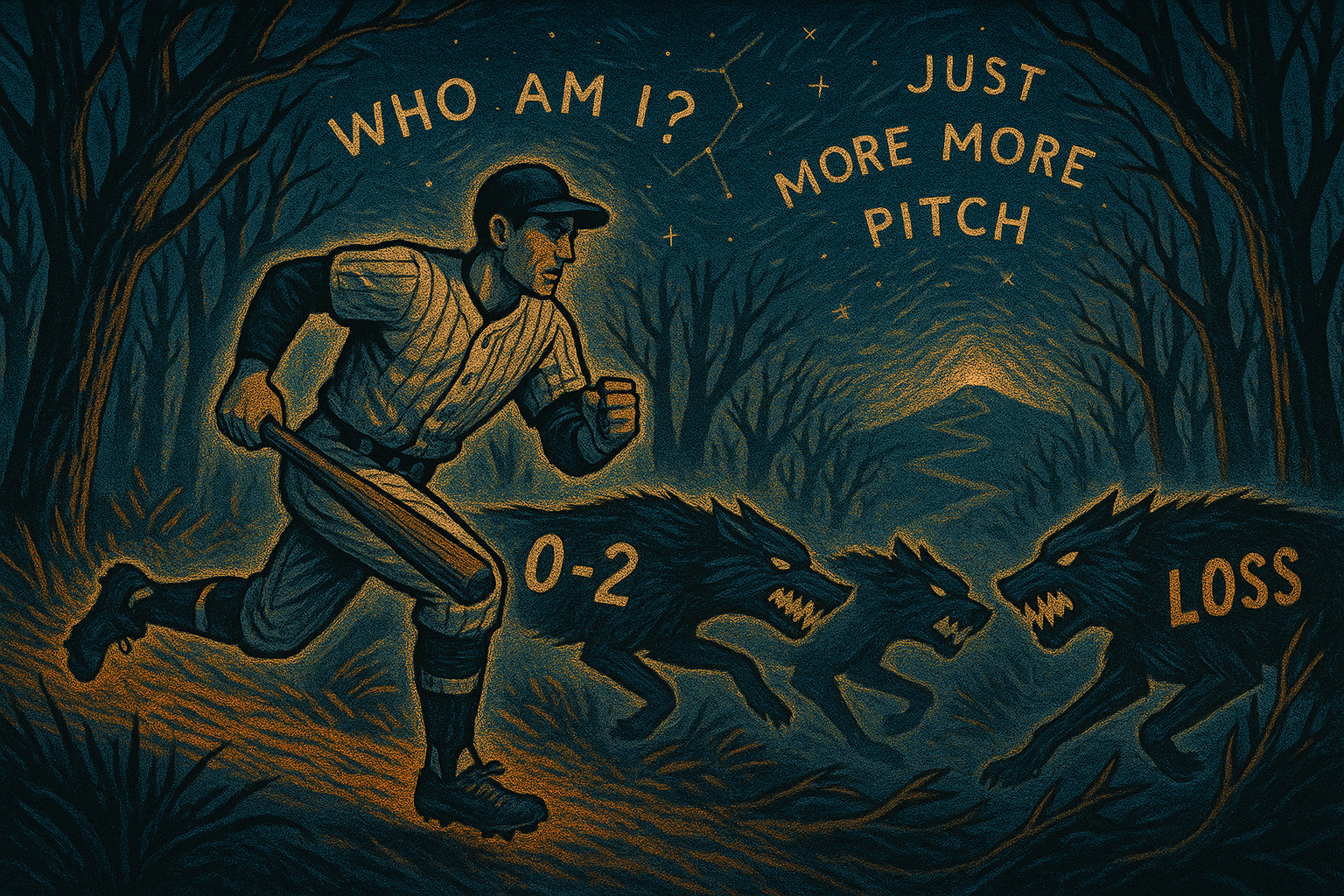We live in a culture that encourages having more not less. Inflation alone demands that you earn more tomorrow than you made today, just to keep up with yesterday. Economic homeostasis is an illusion. Entrepreneurship is a concept of becoming free from hand-to-mouth living. It eclipses the mentality of merely being able to bring home the bacon to that of owning the whole store. It transcends owning one store to networking all the stores that exist so you can access every imaginable type of bacon that exists in the world anytime you want.
However, it’s a matrix that has constraints. Not everyone is an entrepreneur. Entrepreneurship is powerful. Beginning with nothing and creating something can become addictive. It is certainly exciting, exhilarating and generates a dopamine rush. Listening to stories of entrepreneurs who have gone from rags to riches and have provided value to so many is inspirational.
Like so many aspects of living, the creative thought of entrepreneurship must be guided and governed. Without boundary, entrepreneurs become addicted to the disease of more. They get caught in the rubric of doing more to keep from being less. Here are a few considerations to help guide and govern your entrepreneurial thoughts and behavior.
1. Ownership is an illusion. Everyone wants to be an owner. The amenities of ownership are many. Ownership is a paradox that creates a challenging hook for both addicts and entrepreneurs. In order to own you must learn the art of surrender. The very thing you grasped and sacrificed for must be let go! This paradox applies to an entrepreneur with respect to achievement and possessions as well as addicts regarding sobriety. When the vice grip of pressure closes in while you stretch and strain to make something new a reality, the last thing you want to do is let go! How crazy is this?
Every day a recovering addict must start all over by surrendering the achievement of yesterday to the possibilities of beginning a new day with all of its opportunities and potential pitfalls. Entrepreneurship is the same. Possessions are an illusion. In truth, no one really owns anything. Each person rents space on this earth and eventually, you must give your space back to the life force in the universe. Your past accomplishments must be surrendered to the present moment. This view is not meant to minimize your accomplishment, it just means you cannot possess yesterday.
There is a parallel matrix that aligns addictive behavior and entrepreneurship. The more success you enjoy at one level the more you want at the next. Your perspective is no different than when you had less. It’s the nature of the disease of more. It creates a hole in your soul and you become like the little boy who can’t get enough sugar. It’s important to remember ownership is an illusion.
2. Practice the secret that more is less and less is more. Let your world come to you. Success and sobriety need not be a Brazil nut that requires a nutcracker to open. There is a phenomena that happens when you push for more and more. You never get enough! You become enslaved by an incessant push for success. Jaded by the disease of more, you never get enough of what you really don’t want.
When you let go of the results you allow success and serenity to come to you. It’s not that the results do not matter. It’s just that you free yourself from the illusion that you control outcomes. You can influence results. You can do all that you know to create a positive effect. Then you let go of the outcome with the unconditional confidence that whatever the result it does not define you and you will manage whatever happens. You get free from the bark of shame that screams that you are not enough! As in the lyrics crooned by Janis Joplin, “Freedom becomes another way to say you got nothing left to lose”. It’s the journey of the common average daily experience that creates fulfillment and happiness. If you do not embrace this understanding, then when you achieve the spectacular it will not be enough or fulfilling. Your corner of freedom is how you choose to think about your accomplishments and acquired possessions. No one can take this away from you. Letting life come to you is a Zen mentality necessary to experiencing value in the ordinary, average spaces of life. This is a key matrix position to addiction recovery and entrepreneurship.
3. Failure is a necessary ingredient in the matrix of recovery from addiction and the entrepreneur profession. If you cannot control the results then at some point you will be disappointed with the results of a given effort. It is as certain as the sun coming up the next day! There are many cliches—“Failure is never final”; “Fail forward” etc. They are all meaningful. For sure, to establish longevity as a recovering addict or inveterate entrepreneur you must manage failure everyday. Wayne Dyer used to say “there is no failure, you just produce results” What you do with the results you produce is what matters. You must be able to make meaningfulness from disappointment and discouraging results. It requires the power of reframing your experience to life. It is not about denying or ignoring shortfalls. It is not about lowering expectations so you can pretend you did not fail. It simply means that you become the person that allows yourself to be a mistake-making person and that you will sort and sift meaningful wisdom from every failed endeavor. In this way, you make every failure a source of wisdom that you build upon each day of your life. You learn to not minimize or rationalize excuses for failures and shortcomings. You simply face the reality of temporary defeats, losses, and failures. You glean understanding and wisdom from every mistake. You become more sage and astute to the experience of life. Addicts, with long-term sobriety, and long-established entrepreneurs live with the unshakable awareness that failure is an essential part in the matrix of long-term fulfillment and ultimate destiny of success.





